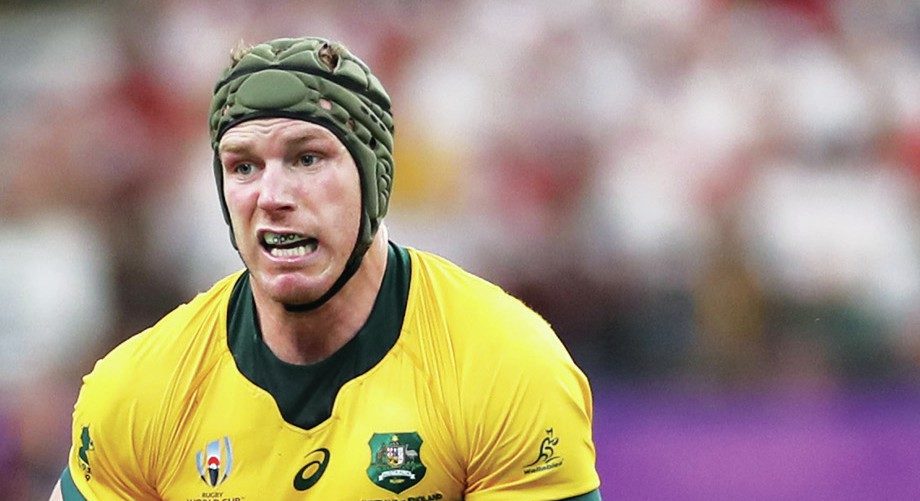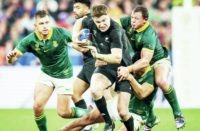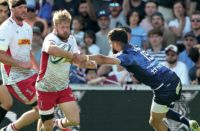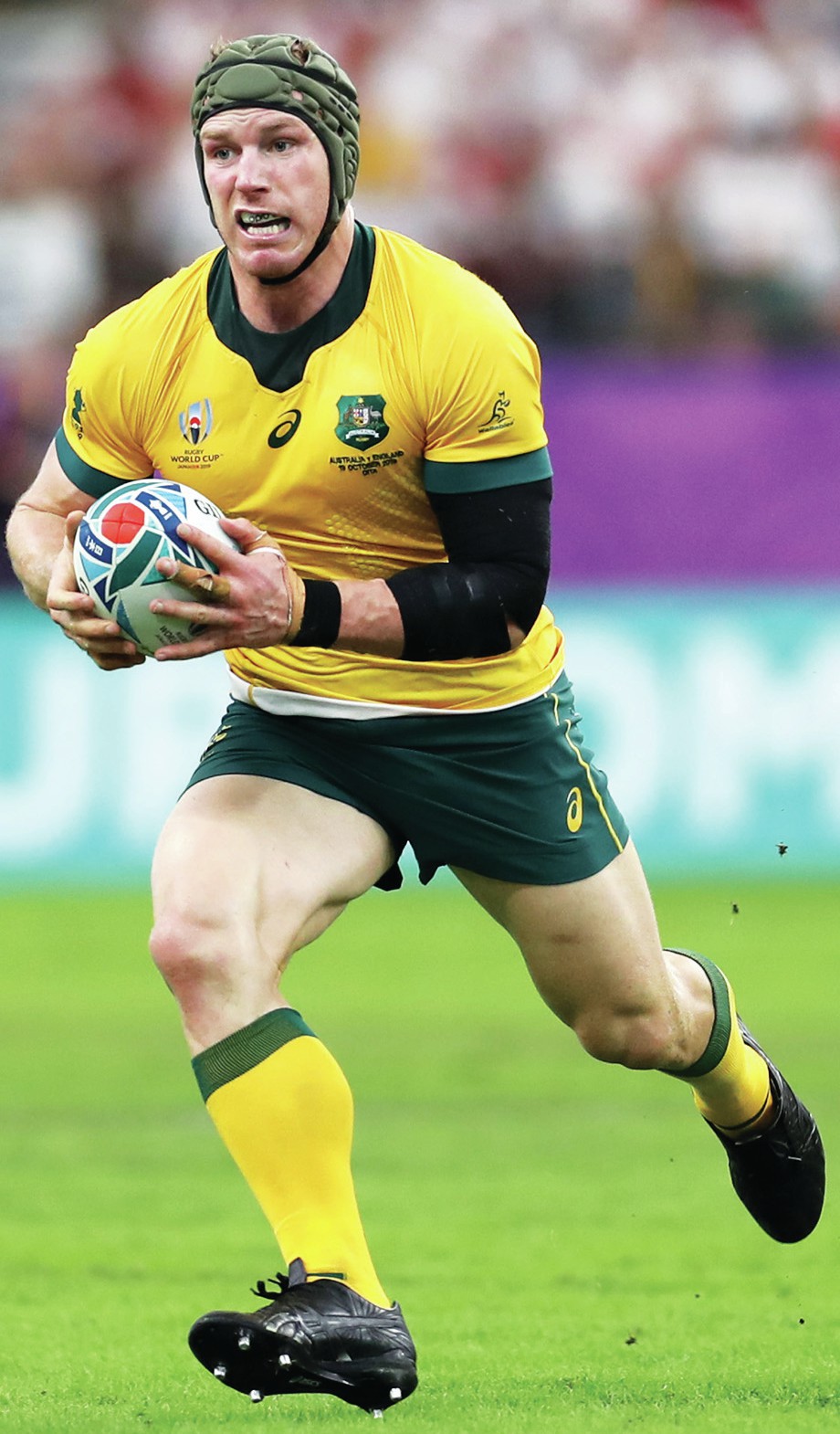CHRIS HEWETT

At the risk of offending the Scottish rugby establishment –a serious hazard when you might find Jim Telfer on your case – this weekend's top-of-thetable meeting between Glasgow High Kelvinside and Dumfries Saints may not have been the biggest event taking place on the banks of the Clyde.
Old Anniesland, where GHK play their home games, has a capacity of 3,500 and would therefore struggle to accommodate Greta Thunberg's security detail, let alone her supporters.
Throw in the battalions of negotiators inside the Cop26 complex and it is tempting to think the unthinkable: namely, that there are more important things in life than sport.
That thought struck the exceptional Wallaby forward David Pocock many moons ago. One of the half-dozen finest back rowers of the professional era, he was, before his retirement last year, the de facto leader of rugby's free-thinking radical wing –a human alarm clock in a sleepy-headed sport wrapped in an eiderdown of its own conservatism – and spoke loudly and clearly on a range of politicallycharged issues, from environmental degradation to same-sex marriage.
Asked recently if he expected increasing numbers of current sportspeople to follow his example, Pocock did not sound confident. “It's a personal decision in terms of how they want to use their platform and what sort of risks they want to take,” he replied. “As an athlete, if you speak up about anything outside of your sport, you open yourself up to a whole bunch of criticism.”
But he can rest easy: modern rugby history tells us that the game lends itself to moral stands, acts of conscience and general nonconformism. Think of John Taylor, Graham Mourie, Jean-Pierre Rives, Michael Jones, Josh Kronfeld…each of them a top international player prepared to stand alone against the crowd.
And each of them an openside flanker (including Pocock, who was always a No.7 at heart despite recasting himself so the Australians could pick both him and Michael Hooper in the same back row). What is it about the breed that makes them fully paidup members of the Awkward Squad?
Taylor, a star turn alongside Gareth and Barry and Merv the Swerve in the most celebrated of all Wales teams, refused to tour South Africa with the Lions in 1974 because he detested apartheid. Having travelled there with the 1968 party, he realised that all the talk of “building bridges” was so much “twaddle” – his words – and, six years later, found himself unable to countenance the “massive arrogance” that led the governing class to insist that “the brotherhood of rugby, the fraternity of rugby, meant more than the brotherhood of man”.
Mourie, a deeply intelligent and thoughtful individual, put even more of himself on the line when he declined to face the Springboks in his native New Zealand in 1981, because he was the All Blacks captain. He knew his decision would have massive ramifications and had to wrench it out of his guts, but when the national selectors reappointed him as skipper immediately after that turmoildrenched tour, it was an overwhelming validation
“Pocock spoke loudly and clearly on a range of politically-charged issues”
Jones, quite possibly the best No.7 ever to play the game, found it easy to square his religious observance with his habit of tackling opponents into oblivion – “The Lord tells us it is better to give than to receive,” he once told your columnist, grinning from ear to ear – but when it came to playing on a Sunday, there was no compromise to be made. He simply wouldn't do it, no matter how important the game. His long-term successor as the All Blacks' breakaway specialist was Kronfeld, who made an exhilarating breakthrough at the 1995 World Cup and promptly went political by displaying “No Nukes” insignia on his headgear while playing for Otago.
Despite stern warnings from his paymasters at the NZRFU, he fully intended to continue his protest on that year's tour of France – the country most heavily involved in nuclear testing in the Pacific, not to mention the “Rainbow Warrior” attack in Auckland harbour – but injury kept him out of the public eye.
As for Rives, that bloodied blond hero of Les Bleus legend, the impulse behind his noncompliance was neither religious nor political. It was a spirit of aesthetic individualism that ultimately led him, entirely fittingly, from the rugby pitch into the artist's studio, where he created a liberating life for himself as a painter and sculptor.
Rives has been responsible for some of the most challenging statements ever made about rugby, but being French in an English-speaking sport, he has not had the widest of hearings. Thanks to Richard Escot, an outstanding writer on the game, and his bewitching book Rugby and Art –a series of conversations with the former captain – we need not remain in ignorance.
Try this for size: “Sharing is the most important part of rugby, (but) the right to be different is an important one. Sharing then complements it. That's what rugby is about, not organising a uniform group that would most likely be mind-bendingly tedious. So while the game is about sharing, at the same time I think it is about casting a look around oneself.”




























